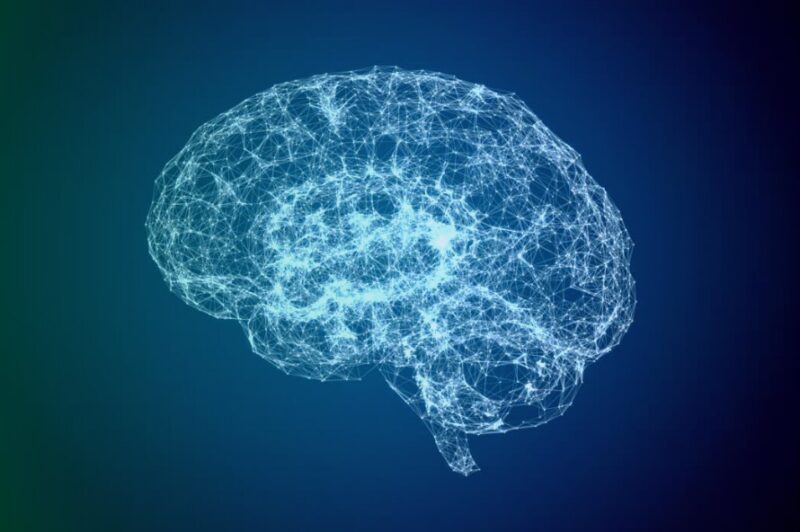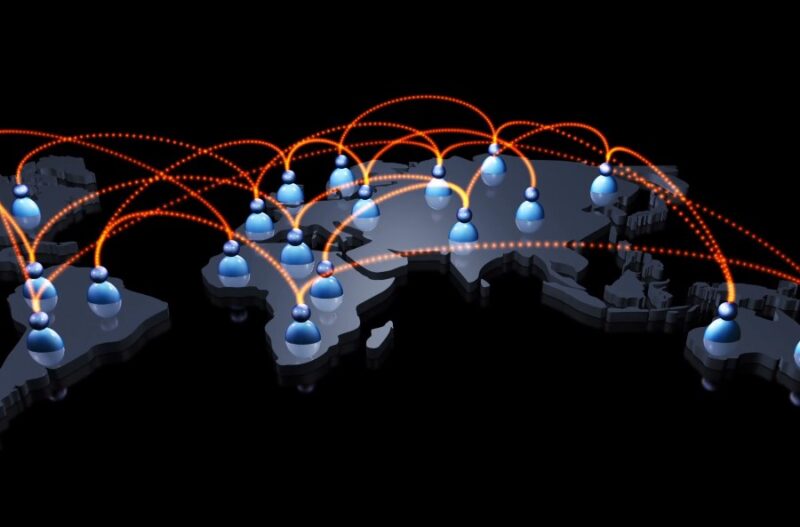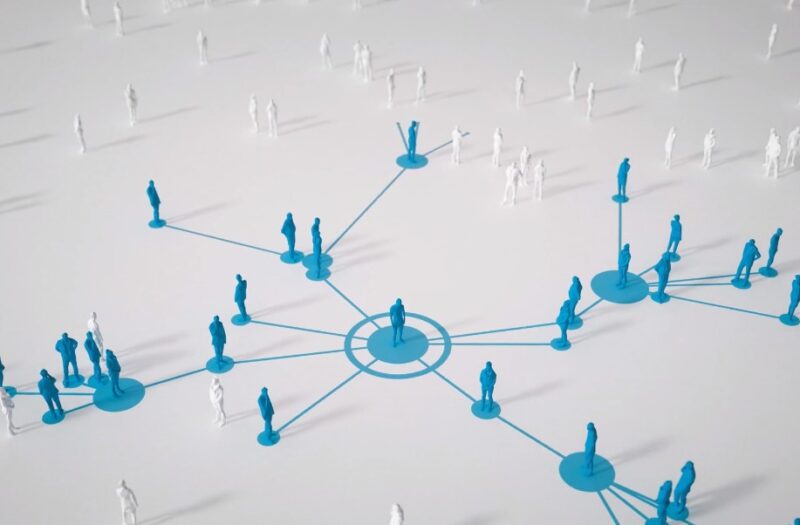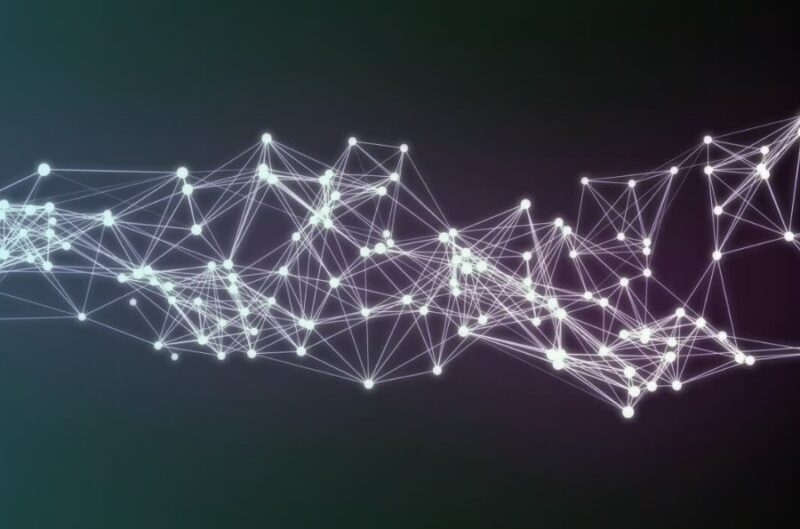Quantum entanglement is one of those phenomena that sounds like it’s straight out of a science fiction novel. At its core, it’s a quantum mechanical phenomenon where two or more particles become interconnected in such a way that the state of one particle is dependent on the state of another, no matter the distance between them.
Imagine two particles on opposite ends of the universe, behaving as if they’re right next to each other. Mind-blowing, right?
Now, what if I told you that there’s a growing interest in the possibility of quantum entanglement between humans? Yes, you read that right. The purpose of this article is to explore this fascinating concept, its implications, and the research surrounding it.
Quantum Entanglement: A Primer
Let’s start with the basics. Quantum entanglement is a fundamental principle of quantum mechanics. When two particles become entangled, their states are intertwined. This means that a change in the state of one particle will instantaneously affect the state of the other, regardless of the distance separating them.
| Entangled Particles | Behavior |
| Electrons | Changes in the spin of one electron will affect the spin of its entangled partner. |
| Photons | Polarization changes in one photon will be mirrored in its entangled counterpart. |
The significance of entanglement in the quantum world is profound. It challenges our classical understanding of the world and has led to groundbreaking discoveries in quantum computing, cryptography, and teleportation.
Human Brain and Quantum Mechanics

The human brain, with its billions of neurons and intricate networks, is a marvel of nature. It’s so complex that we’re still trying to unravel its mysteries.
Some scientists and researchers believe that quantum mechanics might play a role in how our brain functions. While this is still a topic of debate, it’s an exciting avenue to explore.
There are theoretical connections between quantum processes and consciousness. Some theories suggest that quantum events could influence neural activity, potentially playing a role in cognition, perception, and even consciousness itself.
While these ideas are still in their infancy and require more research, they open up a world of possibilities for understanding the human mind.
Presence in Human Experiences

The realm of quantum entanglement is vast, and when we bring it into the context of human experiences, it becomes even more intriguing. Let’s explore this further.
Evidence for Potential Human Entanglement
While quantum entanglement is a well-established phenomenon in the microscopic world of particles, its manifestation in human experiences is still a topic of debate and research. Some scientists and researchers propose that certain interconnected experiences between humans, such as the feeling of being “in sync” with someone or experiencing a deep connection without any apparent reason, might have roots in quantum entanglement. However, it’s essential to note that these are theories and hypotheses, and concrete evidence in this area is still emerging.
Notable Scientific Studies and Experiments

One of the most intriguing intersections of quantum mechanics and human experience is the study of consciousness itself. A 2016 study suggested that human consciousness might be a side effect of entropy, drawing parallels between the intricacies of the human brain and the vast expanse of the Universe. While this doesn’t directly address quantum entanglement, it underscores the potential links between the phenomena and human experiences.
Further research is still needed to establish a direct connection between the two. As the field evolves, it’s crucial to approach such studies with a rigorous scientific methodology, ensuring that results are reproducible and conclusions are drawn from solid evidence.
Anecdotal Reports of Interconnected Experiences
Beyond scientific studies, there are countless anecdotal reports of individuals feeling deeply connected to others in ways that defy conventional explanations. Stories of mothers sensing when their children are in danger, or individuals thinking about someone just moments before they call, are common. While these experiences are compelling, they remain anecdotal, and establishing a direct link to quantum entanglement requires further investigation.
Potential in Communication

Imagine a world where communication happens instantaneously, without the need for words, devices, or even signals. This is the potential promise of quantum entanglement in human communication.
Theoretical Applications
Theoretically, if humans could harness the power of quantum entanglement, it could revolutionize the way we communicate. Information could be transferred instantaneously between individuals, regardless of distance. This could lead to a form of “telepathic” communication, where thoughts and emotions are shared directly, without any external medium.
Quantum Communication Technologies
In technology, quantum communication is already making strides. Quantum key distribution, for instance, is a method that uses the principles of quantum mechanics to create unhackable communication channels. While this is a far cry from human-to-human quantum communication, it’s a step in the direction of harnessing quantum principles for practical applications.
Challenges and Limitations
The primary challenge in this field is the sheer complexity of quantum mechanics and the difficulty of applying it to macroscopic entities like humans. While particles can be easily entangled in controlled environments, doing the same for humans presents numerous challenges, both technical and ethical.
Ethical and Philosophical Implications

The idea just a scientific or technological issue; it has profound ethical and philosophical implications.
The Ethical Dilemmas of Human Entanglement
If humans could be quantumly entangled, it raises questions about privacy, consent, and autonomy. Would it be ethical to entangle two individuals without their knowledge or consent? What about the potential misuse of such a connection for manipulation or control?
Philosophical Debates on Interconnectedness and Free Will
From a philosophical standpoint, human entanglement could challenge our notions of individuality and free will. If our thoughts and emotions could be influenced by an entangled partner, to what extent are we truly autonomous beings? This intertwining of destinies could redefine our understanding of self and others.
Impact on our Understanding of Individuality and Relationships
At the heart of these debates is the concept of individuality. Quantum entanglement between humans might suggest that we are more interconnected than we ever imagined. This could lead to a more holistic understanding of relationships, where the boundaries between self and others become blurred.
The Future

The field of quantum mechanics, especially as it pertains to human experiences, is ever-evolving. Researchers worldwide are jumping into the mysteries of the quantum realm, trying to uncover its implications for human consciousness and interconnectedness.
While the direct evidence of quantum entanglement between humans remains elusive, the pursuit of knowledge in this area is relentless. Laboratories equipped with state-of-the-art technology are conducting experiments to test the boundaries of our understanding.
As technology advances, so does our ability to probe deeper into the quantum world. There’s hope that, in the coming decades, we might witness breakthroughs that could revolutionize our understanding of human experiences.
Imagine a world where quantum communication between individuals becomes a reality, or where we can harness the power of entanglement for therapeutic purposes. The possibilities are as vast as they are exciting.
While it’s challenging to predict the future, one thing is certain: the quest for knowledge will continue. There’s a growing interest in interdisciplinary research, where neuroscientists, quantum physicists, and psychologists collaborate to unravel the mysteries of the human mind. As we move forward, we might find that the boundaries between science, philosophy, and spirituality become more blurred, leading to a more holistic understanding of our existence.
FAQ
How does quantum entanglement differ from classical correlations?
Quantum entanglement is a unique phenomenon where the states of two or more particles become intertwined, such that the state of one particle is dependent on the state of another, regardless of the distance between them. This is in contrast to classical correlations where the behavior of one entity might be correlated with another due to common external factors but doesn’t have the non-local characteristics of entanglement.
Are there practical applications of quantum entanglement in technology today?
Yes, quantum entanglement has paved the way for advancements in quantum computing and cryptography. For instance, quantum key distribution uses entanglement to create secure communication channels that are theoretically unhackable.
How can quantum entanglement be experimentally verified?
One of the most famous experiments to verify quantum entanglement is the Bell test. It tests the predictions of quantum mechanics against those of local realism. Violations of Bell inequalities suggest the presence of entanglement.
Is there any evidence linking quantum mechanics to consciousness?
The relationship between quantum mechanics and consciousness is a topic of ongoing debate and research. Some theories, like the Orchestrated Objective Reduction (Orch-OR) theory, suggest a connection, but concrete evidence is still being sought.
Conclusion
Reflecting on our journey through the intricate world of quantum entanglement and its potential implications for human experiences, it’s evident that we’re on the cusp of something profound. The interplay between quantum mechanics and human consciousness is a testament to the complexity and wonder of the universe we inhabit.
While we’ve made significant strides in understanding the quantum realm, there’s still much we don’t know. However, the stories, both scientific and anecdotal, inspire hope and curiosity. They encourage us to keep questioning, exploring, and marveling at the intricate tapestry of existence.
As we stand at this intersection of science and wonder, it’s essential to approach the future with an open mind, ready to embrace whatever discoveries lie ahead. The journey of understanding quantum entanglement and its relationship with human experiences is just beginning, and the path forward promises to be as intriguing as it is enlightening.

